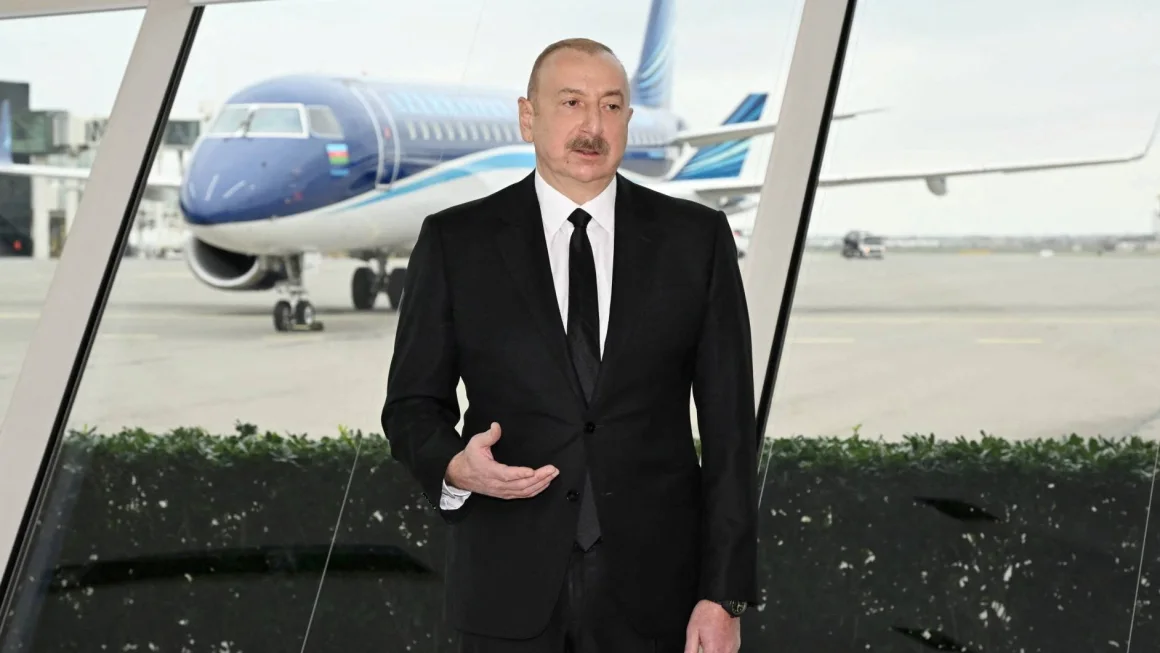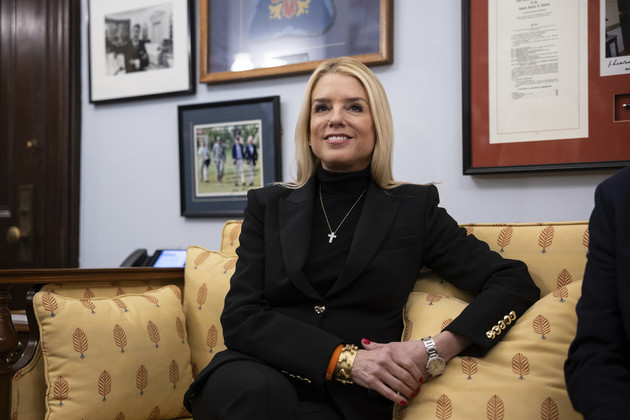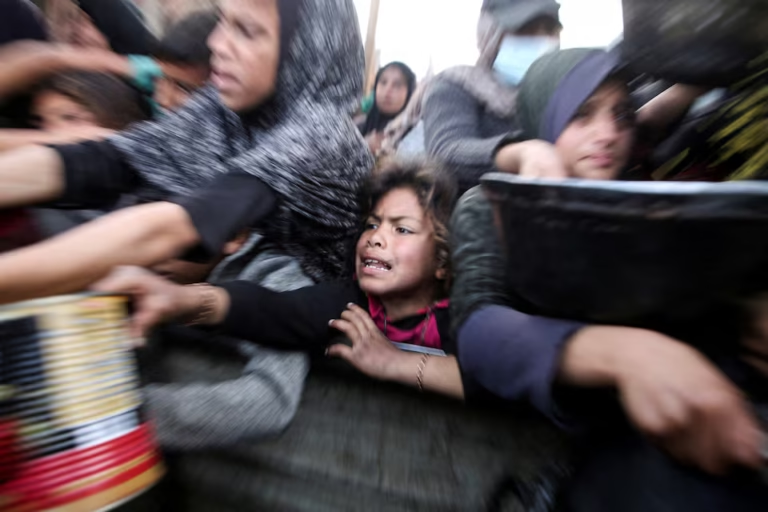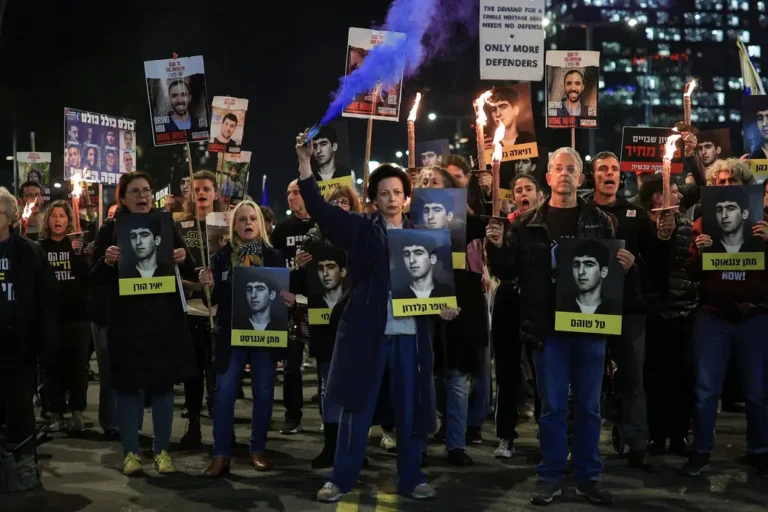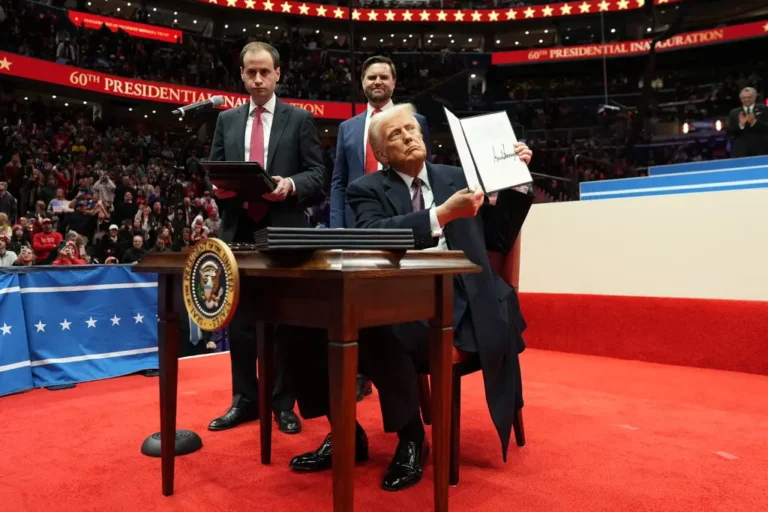Azerbaijan Accuses Russia of Airliner Crash. Azerbaijan’s President Ilham Aliyev has alleged that Russia accidentally shot down an Azerbaijan Airlines airliner on Christmas Day, killing 38 people, and subsequently attempted to cover up the true cause of the disaster.
Aliyev’s Accusations
In a televised interview, President Aliyev stated, “We can clearly say today that the plane was shot down by Russia. This is a fact.” According to a transcript published on Azerbaijan’s presidential website, Aliyev emphasized that the incident was not intentional but still resulted in catastrophic consequences.
The Azerbaijan Airlines Embraer 190 aircraft was en route to Grozny, Chechnya, before making an emergency landing near Aktau, Kazakhstan. Initially, Russia’s Federal Air Transport Agency attributed the crash to a bird collision but later suggested Ukrainian combat drones and dense fog forced the plane out of Russian airspace.
Evidence of a Missile Strike
Perforations resembling shrapnel damage in the aircraft’s fuselage led to widespread speculation that the plane was struck by Russian air defense units. A U.S. official corroborated this theory, telling CNN that initial signs pointed to a Russian system hitting the plane.
Aliyev dismissed the bird-strike theory, citing the visible damage to the fuselage. “The fact that the fuselage is riddled with holes indicates that the theory of the plane hitting a flock of birds is completely removed from the agenda,” he said.

Timeline of Events and Cover-Up Allegations
The Azerbaijani president accused Russia of using electronic warfare to destabilize the aircraft and claimed the plane’s tail was heavily damaged by ground fire. “It is possible the pilot mistook the damage for a collision with birds, as no one would suspect that our plane might be fired upon in a friendly country’s airspace,” Aliyev remarked.
Russian authorities initially blamed an oxygen tank explosion for the crash. Kazakhstan’s Transport Minister Marat Karabayev stated this claim came from a Russian dispatcher. Aliyev labeled this explanation as “regrettable” and an attempt to obscure the truth.
Putin’s Response and Apology
Russian President Vladimir Putin expressed regret over the incident during a phone call with Aliyev. While he apologized for the crash occurring in Russian airspace, he stopped short of admitting fault. Aliyev criticized this response, stating that Russia should fully accept responsibility and apologize transparently.
Aliyev also rejected Russia’s proposal to involve the Interstate Aviation Committee in the investigation, citing the organization’s heavy Russian influence. Instead, Azerbaijan advocated for an independent and transparent inquiry.
Investigation and Next Steps
Kazakhstan announced that flight recorders would be analyzed in Brazil with participation from international and Azerbaijani experts to ensure credibility. Russia’s Investigative Committee Chairman Aleksandr Bastrykin has pledged a comprehensive investigation and vowed to hold those responsible accountable.
The black boxes, which include the Cockpit Voice Recorder (CVR) and Flight Data Recorder (FDR), are expected to provide critical information about the final moments of the flight. These devices will help determine whether there were communication breakdowns, technical malfunctions, or external forces, such as missile strikes, involved in the crash. The analysis is anticipated to take weeks, depending on the extent of the damage to the data storage.
Russia’s Investigative Committee
Russia’s Investigative Committee, led by Chairman Aleksandr Bastrykin, has vowed to conduct a thorough inquiry. Bastrykin has directed a team of seasoned investigators and technical experts to reconstruct the events leading up to the crash. This includes analyzing radar data, air traffic control communications, and missile defense system logs. Russia has also expressed willingness to cooperate with foreign aviation authorities, though concerns about transparency persist due to the geopolitical sensitivities of the incident.
Bastrykin’s team is also looking into potential violations of airspace protocols and the operational readiness of the missile defense systems in the region. This includes questioning military personnel responsible for monitoring airspace activity at the time of the crash.
International Oversight
To address allegations of a cover-up, Azerbaijan has called for international oversight of the investigation. The government has suggested involving third-party organizations like the European Aviation Safety Agency (EASA) and the National Transportation Safety Board (NTSB) from the United States to ensure a balanced review of the evidence. These organizations bring global expertise and credibility, reducing the risk of bias or manipulation.
Accountability and Compensation
While the investigation continues, Azerbaijan has urged Russia to take immediate accountability for the incident. President Ilham Aliyev has called for Moscow to provide compensation to the victims’ families as a gesture of goodwill, regardless of the investigation’s final conclusions. This move aims to address the human toll of the tragedy and mitigate escalating tensions between the two nations.
Conclusion
President Aliyev emphasized the importance of timely and honest acknowledgment from Russia, saying, “Admitting guilt, apologizing, and informing the public were measures that should have been taken. Unfortunately, for the first three days, we heard nothing but absurd theories.”
The crash of the Brazilian-made Embraer 190 airliner remains under scrutiny as international experts and officials work to uncover the truth behind the tragic Christmas Day incident.
